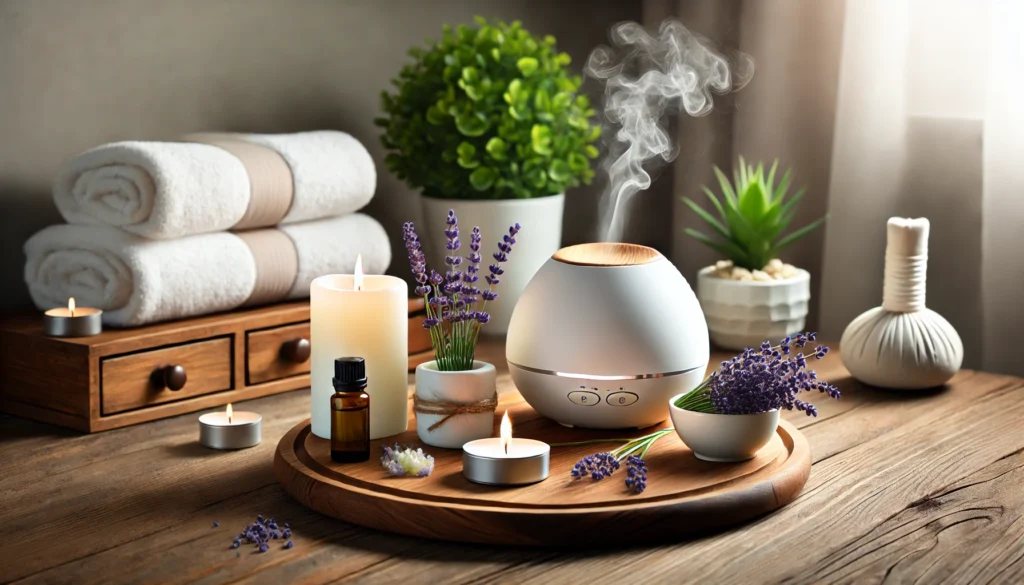Insomnia, a prevalent sleep disorder, has tormented countless individuals throughout history. While modern medicine offers various pharmacological solutions, many seek natural remedies to alleviate sleeplessness without the side effects associated with pills. This article delves into effective natural remedies for insomnia, weaving together historical context, current trends, and future implications to offer a comprehensive overview.
You May Also Like: Essential Vitamins for Better Sleep Quality
Understanding Insomnia
Insomnia is characterized by persistent difficulty in falling asleep, staying asleep, or both, despite the opportunity for adequate sleep. It often leads to daytime fatigue, irritability, and impaired concentration. While acute insomnia can last for a few days to weeks, chronic insomnia persists for a month or longer. The causes of insomnia are multifaceted, ranging from stress and anxiety to poor sleep habits and medical conditions.
Causes and Risk Factors
Stress and anxiety are common culprits behind insomnia, as they can trigger the body’s fight-or-flight response, making it difficult to relax and fall asleep. Additionally, lifestyle factors such as irregular sleep schedules, excessive caffeine intake, and lack of physical activity can contribute to sleep disturbances. Certain medical conditions, including chronic pain, asthma, and depression, also increase the risk of developing insomnia.
Symptoms and Diagnosis
Insomnia manifests through various symptoms, including difficulty falling asleep, waking up frequently during the night, and feeling tired upon waking. It can also result in mood disturbances, such as irritability and depression, and cognitive impairments like difficulty concentrating and memory problems. Diagnosis typically involves a thorough medical history, sleep diaries, and, in some cases, sleep studies to rule out other sleep disorders.
Impact on Health and Well-being
Chronic insomnia can have significant repercussions on physical and mental health. It is associated with an increased risk of cardiovascular diseases, obesity, diabetes, and weakened immune function. The mental health impact includes heightened stress levels, anxiety, depression, and a reduced quality of life. Addressing insomnia is crucial for overall well-being and optimal functioning in daily life.
Historical Context of Insomnia Remedies
Throughout history, civilizations have sought remedies to combat sleeplessness. Ancient Egyptians used opium, while the Greeks favored valerian root. Traditional Chinese Medicine (TCM) incorporates herbs like jujube seeds and chamomile to promote restful sleep. These age-old practices underscore humanity’s enduring quest for natural cures for insomnia.
Ancient Practices and Beliefs
In ancient Egypt, opium was often used not only for its analgesic properties but also for its ability to induce sleep, reflecting the early recognition of its sedative effects. Similarly, the Greeks believed in the power of valerian root, which was often prescribed by physicians like Hippocrates and Galen to ease insomnia. These ancient practices highlight the deep-rooted human pursuit of rest and recovery through natural means.
Traditional Chinese Medicine
Traditional Chinese Medicine offers a holistic approach to insomnia, focusing on balancing the body’s energies or ‘qi’. Jujube seeds and chamomile have been utilized for centuries within TCM to calm the spirit and nourish the heart, promoting peaceful sleep. The continued use of these remedies in modern times underscores their perceived efficacy and the cultural continuity of herbal medicine.
Indigenous and Folk Remedies
Across different cultures, indigenous and folk remedies have played a significant role in managing insomnia. Native American tribes, for instance, have traditionally used hops and passionflower for their calming effects. Similarly, in Ayurveda, an ancient Indian system of medicine, ashwagandha and brahmi are recommended for reducing stress and enhancing sleep quality. These practices reflect a diverse global heritage of natural insomnia remedies.

Modern Trends in Natural Insomnia Remedies
The modern wellness movement has rejuvenated interest in natural remedies. Today, individuals increasingly turn to holistic therapies and lifestyle changes to improve sleep quality. The following sections explore various natural cures for insomnia that align with contemporary health trends.
Herbal Remedies
Valerian Root
Valerian root, a staple in European herbal medicine, is renowned for its sedative properties. It is believed to enhance the production of gamma-aminobutyric acid (GABA), a neurotransmitter that promotes relaxation. This herb is commonly used in teas, capsules, and tinctures, making it accessible for those seeking a natural aid to help them wind down and drift into sleep.
Chamomile
Chamomile tea is a popular bedtime beverage known for its calming effects. Its active compound, apigenin, binds to receptors in the brain, promoting relaxation and sleep. Chamomile is often praised for its gentle and soothing nature, making it a safe option for children and adults alike. Its widespread use in teas and essential oils makes it a versatile remedy for insomnia.
Lavender
Lavender aromatherapy is widely used to alleviate anxiety and improve sleep quality. Research suggests that inhaling lavender essential oil can increase slow-wave sleep, the deep sleep stage. The pleasant aroma of lavender not only creates a relaxing environment but also has a direct calming effect on the nervous system, making it a favorite choice for those seeking a natural path to better sleep.
Dietary Adjustments
Magnesium-Rich Foods
Magnesium is a mineral that plays a crucial role in sleep regulation. Foods such as almonds, spinach, and dark chocolate can support better sleep by helping the body relax. Magnesium supplements are also available for those who may not get enough from their diet, offering an alternative route to enhance sleep quality through nutritional means.
Tryptophan-Rich Foods
Tryptophan is an amino acid that the body converts into serotonin and melatonin, both of which are involved in sleep regulation. Turkey, nuts, and seeds are excellent sources of tryptophan. Incorporating these foods into your diet can help support the body’s natural sleep-wake cycle, making it easier to fall asleep and stay asleep throughout the night.
Balanced Nutrition
Maintaining a balanced diet is essential for overall health and can significantly impact sleep quality. Diets rich in fruits, vegetables, whole grains, and lean proteins provide the necessary nutrients to support hormonal balance and optimal functioning of the sleep-regulating systems. Avoiding heavy meals and stimulants like caffeine before bedtime can also prevent sleep disturbances.
Lifestyle and Behavioral Changes
Sleep Hygiene
Establishing a regular sleep schedule, creating a calming bedtime routine, and optimizing the sleep environment are foundational elements of good sleep hygiene. This includes keeping the bedroom dark, quiet, and cool, and minimizing exposure to screens before bed. Consistency in these practices helps reinforce the body’s natural circadian rhythms, promoting more restful sleep.
Mindfulness and Meditation
Mindfulness practices, such as meditation, have been shown to improve sleep quality by reducing stress and promoting relaxation. Techniques like deep breathing, progressive muscle relaxation, and guided imagery can also aid in calming the mind and preparing the body for sleep. Regular practice of mindfulness and meditation not only improves sleep but also enhances overall mental well-being.
Cognitive Behavioral Therapy for Insomnia (CBT-I)
CBT-I is a structured program that helps individuals identify and replace thoughts and behaviors that contribute to insomnia. It is considered one of the most effective non-pharmacological treatments for chronic insomnia. CBT-I involves techniques such as stimulus control, sleep restriction, and cognitive restructuring, empowering individuals to develop healthier sleep patterns and attitudes.
Technological Innovations
Blue Light Blocking
Exposure to blue light from screens can disrupt the body’s production of melatonin. Using blue light blocking glasses or apps that filter blue light can help maintain a healthy sleep-wake cycle. By reducing blue light exposure in the evening, individuals can improve their ability to fall asleep and enhance the overall quality of their sleep.
Sleep Tracking Devices
Wearable sleep trackers provide insights into sleep patterns, enabling individuals to make informed adjustments to their sleep habits. These devices monitor various parameters, such as sleep duration, quality, and stages, offering valuable data to guide lifestyle changes. The feedback from sleep trackers can also motivate users to adhere to healthy sleep practices and track improvements over time.
Smart Home Technologies
Smart home technologies, such as automated lighting and climate control systems, can create an optimal sleep environment. By adjusting lighting and temperature settings based on the time of day, these technologies support the body’s natural circadian rhythms. Integration with sleep tracking devices can further enhance the personalization of the sleep environment, promoting better rest and recovery.

The Future of Natural Insomnia Remedies
As our understanding of sleep science advances, so too will the development of innovative natural remedies for insomnia. The future may bring personalized sleep therapies based on genetic and biometric data, as well as new discoveries in the realm of plant-based compounds and neurotechnology.
Personalized Sleep Therapies
With advancements in genetic and biometric research, personalized sleep therapies tailored to individual needs and predispositions may become a reality. By analyzing genetic markers and sleep patterns, healthcare providers could develop customized treatment plans that address specific causes of insomnia, enhancing the effectiveness of natural remedies and therapies.
Innovations in Plant-Based Compounds
Ongoing research into plant-based compounds holds the promise of discovering new sleep-promoting substances. Scientists are exploring a wide range of herbs and botanicals for their potential to improve sleep quality and address insomnia’s root causes. As these discoveries progress, they may lead to the development of new, more effective natural sleep aids.
Neurotechnology and Sleep
Neurotechnology, which involves the application of technology to understand and influence brain function, could revolutionize insomnia treatment. Techniques such as neurofeedback and brain stimulation are being explored for their potential to regulate sleep patterns and enhance relaxation. As these technologies evolve, they may offer new, non-invasive solutions for individuals struggling with insomnia.
Practical Advice for Implementing Natural Remedies
For those seeking to incorporate natural remedies into their sleep regimen, consider the following practical steps:
Consult a Healthcare Professional
Before trying new supplements or therapies, consult with a healthcare professional to ensure safety and efficacy. They can provide guidance on potential interactions with existing medications and help identify underlying conditions that may be contributing to insomnia. A professional assessment ensures that chosen remedies align with individual health needs and goals.
Start with One Change at a Time
Gradually introduce changes to your routine to determine what works best for you. Implementing one new remedy or adjustment at a time allows for clearer observation of its effects on sleep quality. This approach also minimizes overwhelming the body and mind, fostering a sustainable transition to healthier sleep habits.
Be Patient and Consistent
Natural remedies may take time to show results. Consistency is key to achieving lasting improvements in sleep quality. Establishing a regular routine and being patient with the process can lead to meaningful changes over time. Perseverance in maintaining new habits and adjustments will ultimately contribute to better sleep and overall well-being.
Monitor Progress
Keep a sleep journal to track changes in sleep quality and identify patterns or triggers. Documenting sleep duration, disturbances, and any new remedies or practices provides valuable insights into what works and what doesn’t. This ongoing assessment enables informed decisions and adjustments to optimize sleep health.

Conclusion
Insomnia, though challenging, can often be managed with natural remedies that promote relaxation and healthy sleep habits. By understanding the historical context, exploring current trends, and considering future implications, individuals can make informed choices about how to cure insomnia without pills. Whether through herbal supplements, lifestyle changes, or innovative technologies, there is a wealth of natural cures for insomnia that offer hope for restful nights and rejuvenated days. Embracing these approaches not only addresses insomnia but also enhances overall health and quality of life, paving the way for more restorative sleep and a brighter tomorrow.
Further Reading:
The Impact of Complementary and Alternative Medicine on Insomnia: A Systematic Review
Important Note: The information contained in this article is for general informational purposes only, and should not be construed as health or medical advice, nor is it intended to diagnose, prevent, treat, or cure any disease or health condition. Before embarking on any diet, fitness regimen, or program of nutritional supplementation, it is advisable to consult your healthcare professional in order to determine its safety and probable efficacy in terms of your individual state of health.
Regarding Nutritional Supplements Or Other Non-Prescription Health Products: If any nutritional supplements or other non-prescription health products are mentioned in the foregoing article, any claims or statements made about them have not been evaluated by the U.S. Food and Drug Administration, and such nutritional supplements or other health products are not intended to diagnose, treat, cure, or prevent any disease.


